-
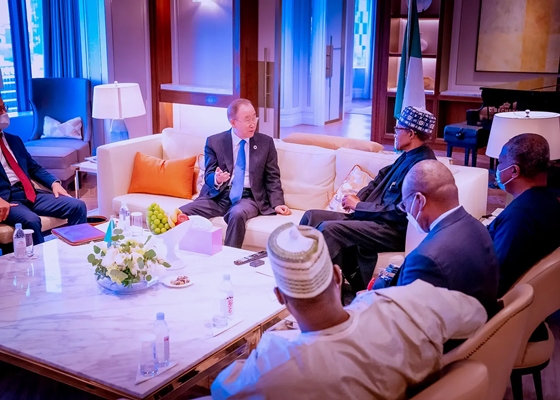
Buhari meet Ban Ki-moon, says Nigeria facing climate change challenges
October 25, 2022VanguardPresident Muhammadu Buhari has said that the recent flooding, desert encroachment and drought being experienced in various parts of the country are all negative fallouts of climate change.In a statement signed by the Special Adviser to the President on Media and Publicity, Femi Adesina, Buhari made this known while during an audience he granted the former United Nations Secretary-General, Ban Ki-moon, on the sidelines of the First World Bio Summit 2022 in Seoul, South Korea.According to the statement which is titled ‘Nigeria facing climate change challenges, President Buhari declares during meeting with Ban Ki-Moon in Seoul’, the president appreciated the existing cooperation between Nigeria and the Republic of Korea, especially in the aspect of gas exports to the Asian country.Buhari also highlighted education as a critical investment in addressing unemployment and underdevelopment, calling for a closer focus on health challenges.In his remarks, the former UN Chief who advocates Climate Change remediation and chairs the Ban Ki-moon Foundation for Better Future sympathised with the President over the flooding.Ki-moon called for more investment to improve education and avert environmental degradation and preventive diseases to meet the core Sustainable Development Goals.He appreciated Buhari for attending the World Bio Summit, adding that his presence would highlight the importance of global action and cooperation in developing vaccines and technology to meet the huge threat and challenges of pandemics.Ki-moon also noted that Nigeria is “a very important country,” having prominent citizens occupying sensitive positions in global organizations.Therefore, he called for more people-to-people engagements and cultural cooperation between both countries even as he sought Nigeria’s support in Korea’s bid to host an EXPO in 2030.Explaining his pet project, the ex-UN Scribe said his Global Centre on Adaptation is trying to mobilize resources to help developing countries fight climate change.He urged donor countries to fulfill their financial commitments to the Global Climate Fund.Buhari and his guest also discussed the role of gender equality in attaining a prosperous society while calling for an end to the war in Ukraine.
-
- 1,725
-
- 3 November 2022
-
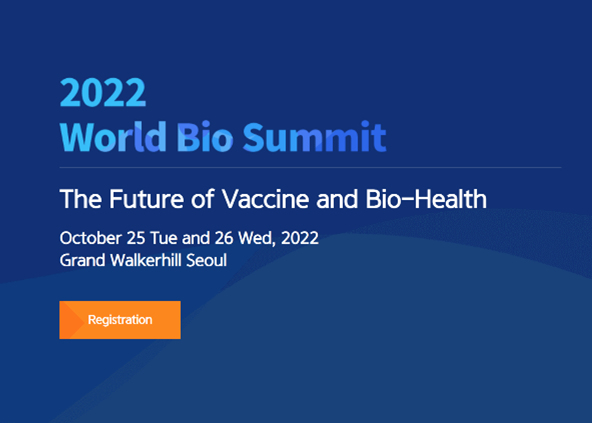
Ban Ki-moon to speak at the inaugural World Bio Summit co-hosted by South Korea and WHO
October 21, 2022Yeonhap NewsSEOUL, Oct. 21 (Yonhap) — South Korea and the World Health Organization (WHO) will co-host the inaugural World Bio Summit next week to share the latest technological improvements in vaccines and the bio-health industry and discuss ways to increase preparedness for future pandemics, Seoul’s health ministry said Friday.Under the theme of “The Future of Vaccine and Bio-health,” the World Bio-Summit 2022 will take place next Thursday and Friday in Seoul, with hundreds of leaders from international health organizations and global enterprises, according to the Ministry of Health and Welfare.Tedros Adhanom Ghebreyesus, director-general of the WHO, will give opening remarks online, while former U.N. Secretary-General Ban Ki-moon and Jerome Kim, director general of the International Vaccine Institute, will deliver speeches in person.In the CEO’s sessions on the first day, officials of vaccine and bio companies, including SK bioscience, Moderna and Pfizer, will gather their expertise in developing COVID-19 vaccines and seek solutions to tackle potential challenges.On the second day, health ministers from six countries, including South Korea, the United States, Nigeria and Germany, will adopt the Seoul Declaration, committing to getting fully ready for future pandemics based on international cooperation.“During the COVID-19 pandemic, South Korea has been emerging as a hub in the bio health industry,” said Kim Hyun-sook of the health ministry. “The inaugural World Bio Summit will help Korea take the international initiative in shaping ideas of the future of vaccine and biologics.”
-
- 1,721
-
- 27 October 2022
-
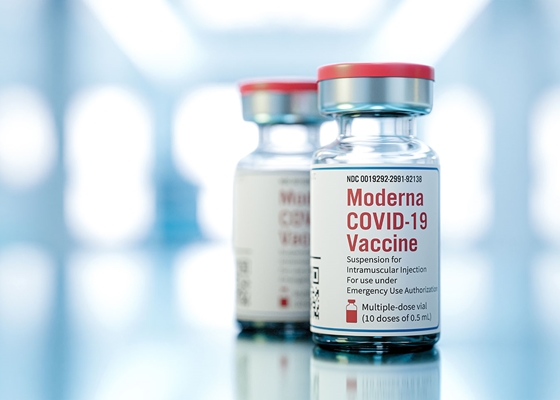
Gavi, Moderna update COVAX supply agreement; agree on access to variant-containing vaccines for l...
17 October 2022reliefwebGavi, the Vaccine Alliance announced today that it had signed an agreement with Moderna related to the supply of COVID-19 vaccines to lower-income countries supported by the Gavi COVAX Advance Market Commitment (AMC). Under the agreement, Gavi and Moderna agree to cancel remaining volumes under their previous agreement in 2022, and establish a framework for lower-income countries to access doses of variant-containing vaccine (VCV) beginning in 2023. Gavi will have the right to access up to 100 million VCV doses, at Moderna\'s lowest tiered price, on behalf of AMC participants.\"This agreement with Moderna represents a critical step for equitable access, helping COVAX adjust its portfolio to current demand and ensuring lower income countries have access to variant-containing vaccines to use where appropriate,\" said Dr Seth Berkley, CEO of Gavi, which leads procurement and delivery at scale for COVAX.In the two years since the first COVID-19 vaccine received WHO emergency approval in December 2020, COVAX has delivered 1.8 billion doses to 146 countries around the world -- the largest and fastest public health rollout in history. This includes nearly 186 million doses of the Moderna vaccine, through both the advance purchase agreement with Moderna and dose donations. This effort has enabled 92 lower-income countries to protect, on average, more than 50% of their populations with two doses of COVID-19 vaccine -- and protect the majority of those at highest risk such as health care workers and the elderly.\"Gavi and our COVAX partners have been pivotal in ensuring the global supply of COVID-19 vaccines, leading the largest and most rapid vaccine rollout in history,\' said Stéphane Bancel, Chief Executive Officer of Moderna. \"We are proud of our role in this endeavor and will continue to support COVAX\'s mission to ensure broad, affordable, and equitable access to COVID-19 vaccines across low- and middle-income countries as we move towards a world where COVID-19 is endemic.\"A key element to COVAX\'s ability to deploy COVID-19 vaccines at a historically high rate has been its ability to adapt to an unpredictable and rapidly changing pandemic environment. This latest agreement is part of an on-going effort to actively manage COVAX\'s portfolio to meet countries\' evolving needs and be prepared for unexpected future scenarios by rephasing, resizing and updating supply agreements with manufacturers and donors.Recognising that countries\' needs are still constantly changing, COVAX has also updated its allocation model so that AMC participants can now request -- and be rapidly allocated -- doses at any time. To-date, COVAX has been able to make doses available for 100% of the country requests received through this \"rolling allocation\" process.
-
- 1,796
-
- 27 October 2022
-
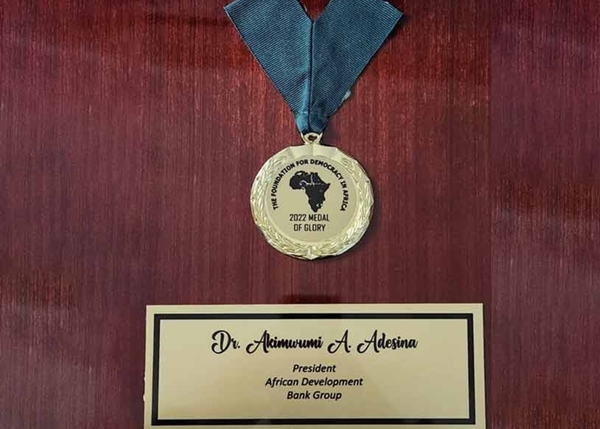
U.S.-based Foundation for Democracy awards African Development Bank’s Akinwumi Adesina for exem...
October 15, 2022African Development Bank GroupU.S.-based Foundation for Democracy in Africa, an advocacy and research think tank, has conferred its topmost Medal of Glory Award on African Development Bank President Akinwumi Adesina for his exemplary leadership.The Medal of Glory Award is the Foundation’s highest honor, given annually for extraordinary contributions to democracy, good governance, and the advancement of trade, investment and cultural ties in Africa.For Adesina, the award selection committee recognized, in particular, the bank Group’s Covid-19 response “that provided African Governments and the private sector with critical financial help on debt relief and a fiscal stimulus package that ensured continuity of government and provision of social goods during the darkest months and years of the global pandemic in Africa.”Senior Advisor on Communication at the African Development Bank Group, Dr. Victor Oladokun, received the award on Adesina’s behalf at the Foundation’s annual AfrICANDO 2022 conference and exhibition held in Miami, Florida, on October 13.Dr. Oladokun commended the Foundation’s leadership for its consistent advocacy for Africa, especially in building investment bridges between the U.S. and the continent. He also thanked the award selection committee for recognizing the transformative work of Adesina and the Bank Group.“This Medal of Glory Award is an inspiration to bring greater glory to Africa. I want to assure you that Dr. Adesina will continue to do that, and so will the African Development Bank Group,” the senior advisor said.He called on the Foundation, its affiliates, and global delegates to support the Bank’s initiatives for addressing climate change and food security. He also urged the international community to rally behind the bank’s advocacy for a portion of the IMF’s additional Special Drawing Rights to help build resilience in Africa.Dr. Oladokun stressed: “Africa faces an existential crisis that is not of its own making. We must therefore translate visionary leadership into concrete action.”The Foundation also awarded three local government commissioners in Florida for their dedicated public service. It also presented a posthumous award for a retired media specialist for a lifetime commitment to community service.The annual AfrICANDO conference brings producers from sub-Saharan Africa under one roof to showcase their exportable products to importers, business leaders, investment promotion authorities, policymakers, and ambassadors from Africa.This year’s event focused on health security, climate and food security, and tourism. It comprises seminars, business-to-business matchmaking, and exhibitions. It was crowned with a gala awards dinner at the Hilton Airport and Convention Center, Miami.Past recipients of the Medal of Glory Award include late Malawi President Bingu Wa Mutharika; former Nigerian President Olusegun Obasanjo; Senator Connie Mack of Florida, Dr. Dorothy Height, President of the National Council of Negro Women; former Senegalese Presidents Abdou Diouf and Abdoulaye Wade, former Malian President Alpha Omar Konare; and Dr. Mo Ibrahim, founder of Mo Ibrahim Foundation.
-
- 1,830
-
- 19 October 2022
-
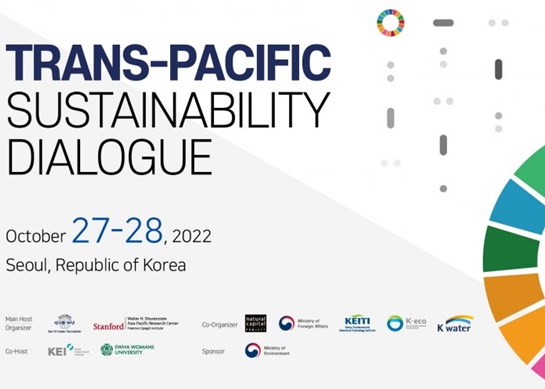
The Ban Ki-moon Foundation and Stanford’s Asia-Pacific Research Center Launch Trans-Pacific Sus...
October 12, 2022StanfordThe Walter H. Shorenstein Asia-Pacific Research Center (APARC) at Stanford University and the Ban Ki-moon Foundation For a Better Future announced today the launch of an annual Trans-Pacific Sustainability Dialogue in Asia to accelerate progress on achieving the United Nations-adopted 2030 Agenda for Sustainable Development. The joint project will spur new research and policy partnerships between experts from the United States and Asia to expedite the implementation of the Agenda’s underlying 17 Sustainable Development Goals (SDGs) by governments and non-state actors. The two-day inaugural Dialogue will be held in Seoul, Republic of Korea, on October 27 and 28, 2022, and will be free and open to the public.The Dialogue’s co-organizers include the Natural Capital Project (NatCap) of Stanford University, the Ministry of Foreign Affairs of the Republic of Korea, Korea Environmental Industry and Technology Institute (KEITI), Korea Environment Corporation (K-eco), and Korea Water Resources Corporation (K-water). The Ministry of Environment of the Republic of Korea is the event’s sponsor. The first day will take place at The Plaza Seoul and will be co-hosted by the Korea Environment Institute. It will include a series of public sessions headlined by Ban Ki-moon, the eighth secretary-general of the UN, who will join a lineup of world leaders including Kevin Rudd, former prime minister of Australia and chief executive officer and president of the Asia Society; Iván Duque, former president of the Republic of Colombia; and Gombojav Zandanshatar, chairman of the State Great Hural (Parliament) of Mongolia.“This Dialogue is very timely and relevant as the climate crisis is deepening in the aftermath of the Russian invasion of Ukraine and the Sustainable Development Goals are becoming more difficult to achieve in the midst of the Coronavirus pandemic,” says Mr. Ban Ki-moon. “Asia-Pacific countries should be more aggressive in the fight against climate change and more audacious in the role they play toward achieving the SDGs,” he noted.In this spirit, expert discussions on the second day will bring together social science researchers and scientists from across the Asia-Pacific region, alongside policymakers and practitioners, to share local and global nature-positive solutions and new pathways of meaningful SDG acceleration actions. Co-hosted by and held at Ewha Womans University, the panel discussions will explore the making of livable, sustainable cities, such as Busan Metropolitan City, and the threats to them by climate change, disasters, and human security issues. To achieve systems transformation and sustainable development, discussions will turn to the need to value and invest in nature.“Climate and sustainability solutions span disciplines and sectors and require collaboration with partners worldwide,” says Gi-Wook Shin, the William J. Perry Professor of Contemporary Korea at Stanford and director of APARC. “The launch of the Stanford Doerr School of Sustainability marks an opportune moment to scale up SDGs implementation by leveraging knowledge and expertise from across Stanford and the Asia-Pacific and engaging the next generation of scholars and experts,” Shin adds. “We are honored to join in this effort with Mr. Ban and his team, with whom APARC has an established relationship.”Highlighting the role of youth in achieving the SDGs, the Dialogue includes student panels that feature young leaders from Stanford University, Ewha Womans University, Osaka University, and De La Salle University, among other Asian universities. Students’ research, applied work, and entrepreneurial endeavors across the region showcase innovations and transformations in green financing and sustainable investments, gender mainstreaming and climate governance, development cooperation for sustainable governance, and scaling environmental solutions through a business and social justice lens.The Seoul Trans-Pacific Sustainability Dialogue is the inaugural event in APARC and the Ban Ki-moon Foundation’s joint effort to stimulate ambitious action to deliver the 2030 Agenda and SDGs. The annual Dialogue may rotate among different host cities in Asia to address different themes selected from the SDGs framework spearheaded by Mr. Ban Ki-moon during his term as the UN Secretary-General.About the Walter H. Shorenstein Asia-Pacific Research CenterThe Walter H. Shorenstein Asia-Pacific Research Center (Shorenstein APARC) addresses critical issues affecting the countries of Asia, their regional and global affairs, and U.S.-Asia relations. As Stanford University’s hub for the interdisciplinary study of contemporary Asia, APARC produces policy-relevant research, provides education and training to students, scholars, and practitioners, and strengthens dialogue and cooperation between counterparts in the Asia-Pacific and the United States. Founded in 1983, APARC today is home to a scholar community of distinguished academics and practitioners in government, business, and civil society, who specialize in trends that cut across the entire Asia-Pacific region. For more, visit aparc.stanford.edu.About the Ban Ki-moon Foundation For a Better FutureThe Ban Ki-moon Foundation For a Better Future follows and further develops the achievement and philosophy of Ban Ki-moon, the 8th Secretary General of the United Nations through upholding the values of unification, communication and co-existence, and dedication. It promotes three pillars of the UN including peace and security, development, and human rights and contributes to making a better future devoid of conflict and deficiency. In particular, the Ban Ki-moon Foundation actively collaborates with the UN, international organizations, and stakeholders toward achieving the 2030 Sustainable Development Goals and realizing the 2050 carbon net-zero of all state parties of the Paris Climate Accord of 2015. For more, visit http://eng.bf4bf.or.kr/.
-
- 2,015
-
- 19 October 2022
-
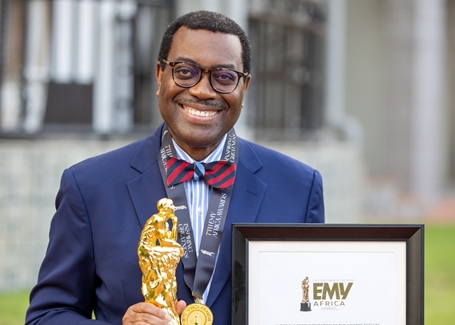
African Development Bank President Akinwumi Adesina Awarded Man of the Year (Africa) in 2022 By E...
all Africa6 October 2022African Development Bank President Dr. Akinwumi Adesina has been named 2022 Man of the Year (Africa) by Exclusive Men of the Year (EMY), for his visionary leadership as the president of the African Development Bank Group and for his outstanding contribution to Africa during his period as agriculture minister of Nigeria.The EMY awards are organized by the EMY Africa Magazine, \"a premier men\'s magazine that addresses the people, places, ideas and issues that shape men\'s personal expressions, development and experiences.\"\"When we look around, we see different people making their contributions to society. We know Africa is going to be Africa if we harness our agricultural value and go up the value chain. One man has stood up for his inspiration, for his motivation and for making us believe with a vision and strategy that we can achieve this,\" said UN Resident Coordinator in Ghana, Charles Abani, who announced the prize during a ceremony held on 1 October in Accra, Ghana.As Minister of Agriculture in Nigeria from 2011 to 2015, Adesina is credited with turning the agriculture sector of Nigeria around within four years. Under his tenure, Nigeria ended 40 years of corruption in the fertilizer sector by developing and implementing an innovative electronic wallet system, which directly provided farmers with subsidized farm inputs at scale using their mobile phones. Within the first four years of its launch, this electronic wallet system reached 15 million farmers.With Adesina at the helm, the African Development Bank Group achieved the highest capital increase since its establishment in 1964. On 31 October 2019, shareholders from 80 member countries raised the general capital from $93 billion to a historic $208 billion.Adesina has also led other achievements such as the Bank\'s bold and swift response to the Covid-19 pandemic with the launch of a landmark $3 billion Covid-19 Social Bond followed by a Crisis Response Facility of up to $10 billion. In May this year, the African Development Bank Group\'s Board of Directors approved a $1.5 billion Emergency Food Production Facility to help tackle the global food crisis sparked by the Russian-Ukraine conflict. The funds will help 20 million African farmers produce an extra 38 million metric tons of food to address growing fears of starvation and food insecurity on the continent.In announcing the Man of The Year (Africa) award, EMY recognized Dr Adesina\'s contribution as \"a bold reformer\" and \"globally renowned development economist and agriculture development expert, with more than 30 years of experience in development.\"Since 2016, EMY Africa has celebrated the best in men\'s achievements across local industry, community, culture and public service. Past recipients of the EMY Africa Awards have been inspirational men with accomplished or promising careers who have made important contributions to life in African communities.Receiving the award on behalf of Dr. Adesina, African Development Bank Ghana Country manager for Ghana Eyerusalem Fasika thanked the EMY team and all the partners for the recognition.
-
- 2,014
-
- 12 October 2022
-
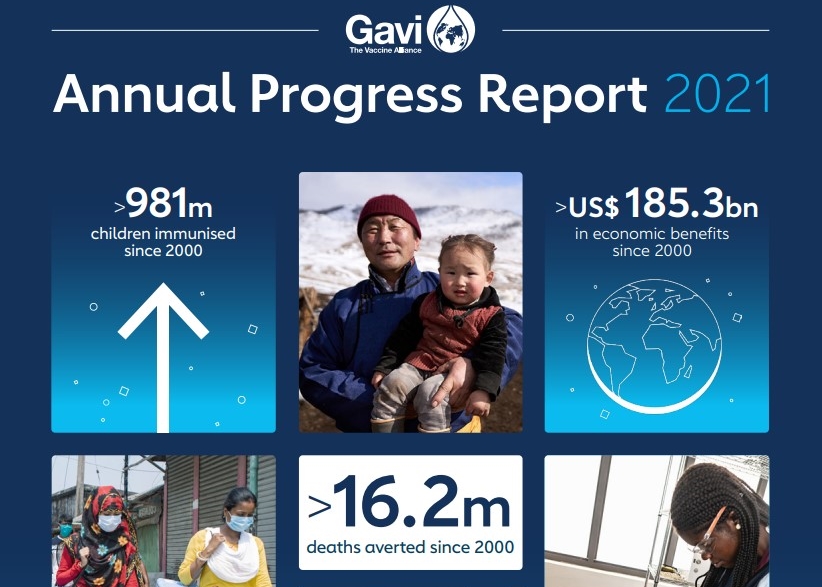
Gavi Annual Progress Report 2021
Reliefweb29 September 2022Routine childhood immunisation experienced another challenging year in 2021 across the 57 countries supported by Gavi, the Vaccine Alliance, as basic vaccine coverage fell 1 percentage point to 77%, according to Gavi’s 2021 Annual Progress Report, which is published today. However, preliminary data for the first five months of 2022 suggests health systems may be recovering from the strains placed on them by the pandemic.With 65 million children in Gavi-supported countries immunised through routine systems in 2021, Gavi’s work managed to generate more than US$ 18.9 billion in economic benefits, according to the Report. Another highlight of 2021 was the record US$ 161 million in co-financing contributed by Gavi-supported countries, which indicates further progress towards sustainability and country commitment to protecting childhood immunisation.The Report also considers the fact that, with Gavi countries also administering more than 2 billion COVID-19 vaccines, their respective health systems were able to protect more people than ever before in 2021.One area of strategic focus for the Vaccine Alliance in 2022 and beyond highlighted in the report is the increase in the number of zero-dose children, infants who have not received the first dose of diphtheria, tetanus and pertussis-containing vaccine (DTP1), which grew by 570,000 to 12.5 million – leaving them vulnerable to some of the world’s deadliest diseases, and making Gavi’s 5.0 mission to locate and reach them even more pressing.Preliminary data from WHO suggests that countries’ immunisation programmes may be starting to recover. Among the 16 countries having reported data for January–May 2022, the data suggests a 2% increase. Gavi and its Alliance partners will be studying this data keenly in the coming months, to understand how countries are restoring their immunisation systems.“We have faced significant challenges,” said Prof José Manuel Barroso, Chair of the Gavi Board. “Routine immunisation continued to suffer in many countries in 2021 as a result of the pandemic. However, we are encouraged that the countries Gavi supports administered a record number of vaccine doses, both through routine programmes and also in their fight against COVID-19. Many countries did already begin to recover, which is a testament to heroic efforts made by their health systems and workers. As we move forward, we must maintain our focus on supporting routine immunisation and reaching zero-dose children with life-saving vaccines.”2021 also saw significant change for Gavi. In December 2021, the Gavi Board made history by approving funding to support the roll-out of the world’s first malaria vaccine in sub-Saharan Africa in 2022–2025. In addition, the first doses of licensed Ebola vaccine were shipped from a Gavi-funded global emergency stockpile of 500,000 doses. COVAX – which Gavi co-leads alongside the Coalition for Epidemic Preparedness Innovations (CEPI), the World Health Organization (WHO) and UNICEF – shipped nearly 1 billion doses of COVID-19 vaccines to 144 countries and territories around the world by the end of the year; that figure reached nearly 1.8 billion in September 2022.“Since 2019, we have seen the biggest sustained drop in routine immunisation in a generation, and millions of children are still missing out,\" said UNICEF Executive Director Catherine Russell. “Immunisation is one of the world\'s most effective and cost-effective public health interventions. Working alongside Gavi and other key partners, we need to catch-up on missed children – especially ‘zero-dose’ children who have yet to receive a single immunisation against killer childhood diseases – and make sure lost ground does not become lost lives.”“One of the great ironies of the COVID-19 pandemic is that while it has spurred the largest vaccination campaign in history, it has also disrupted routine immunisation for many vaccine-preventable diseases,” said Dr Tedros Adhanom Ghebreyesus, WHO Director-General. “Together with Gavi and other COVAX partners, WHO is committed to delivering vaccines against COVID-19 to end the pandemic, while scaling up routine immunisation services to reach every last child with life-saving vaccines.”\"I am proud that health workers and the health system in Chad have succeeded in increasing the number of vaccinations by more than six percentage points and reducing the number of zero-dose children by 2021 despite the challenges of the pandemic and the global climate, in collaboration with Gavi and Vaccine Alliance partners, including WHO and UNICEF,” added Dr Abdelmadjid Abderahim, Minister of Health and National Solidarity of the Republic of Chad.“While we saw 65% of Gavi-supported countries restore routine immunisation to pre-pandemic levels, we must accept the fact that the recovery in 2021 was not as strong as we had would have liked,” stressed Dr Seth Berkley, Gavi CEO. “The same can be said for zero-dose children, who, as a cohort, tragically by grew by 570,000 in 2021. Early indications are that 2022 started strongly and this gives grounds for optimism. Likewise, we continue to look to high-performing countries such as Chad and Pakistan to identify learnings that can be applied in other countries and apply special attention to those countries where improvement continues to be elusive. There is no higher priority for the Alliance in 2022 than keeping routine immunisation progress on track.”Between 2000 and 2021, Gavi’s achievements included:> 981 million children vaccinated through routine programmes> 1.4 billion vaccinations through vaccination campaigns> 16.2 million future deaths prevented 561 vaccine introductions and campaigns> US$ 185.3 billion in economic benefits generated in the countries we support US$ 1.3 billion in co-financing contributions from Gavi-supported countries since 2018
-
- 2,249
-
- 5 October 2022
-
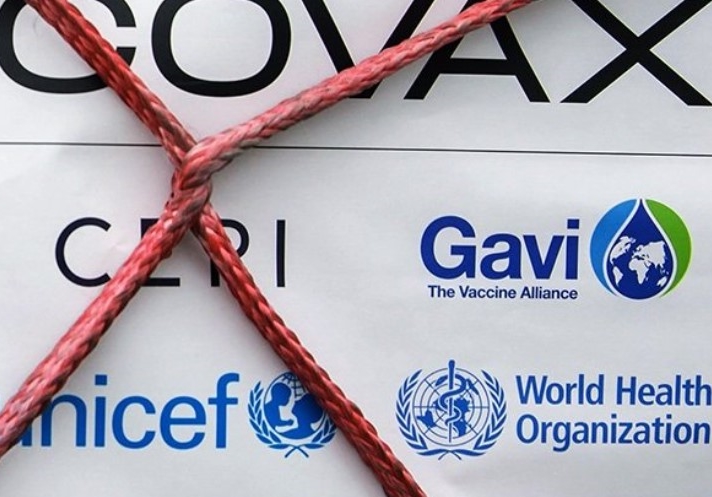
400 000 doses of Comirnaty vaccine delivered to Ukraine under COVAX
World Health Organization19 September 2022On 18 September, 400 000 doses of the Comirnaty mRNA vaccine against COVID-19 developed by Pfizer/BioNTech were delivered to Ukraine under the framework of the COVID-19 Vaccines Global Access (COVAX) Facility. The vaccines will be distributed throughout 23 regions in the country by the Ministry of Health of Ukraine. “Together with our international partners, we continue to deliver vaccines against COVID-19 to Ukraine. With the approach of the autumn/winter period, it is especially important to protect yourself from COVID-19, because as the experience of past years shows, the incidence increases sharply at this time,” said Dr Ihor Kuzin, Deputy Minister of Health and Chief State Sanitary Doctor of Ukraine. “Vaccination is an important priority during humanitarian emergencies, and one of UNICEF\'s key areas of work aimed at the protection and well-being of children and their parents. UNICEF will continue to help Ukraine provide access to immunization and adhere to a cold chain for vaccines,” emphasized Mr Murat Sahin, United Nations Children’s Fund (UNICEF) Representative in Ukraine. Dr Jarno Habicht, WHO Representative in Ukraine, explained, “WHO continues to support Ukraine’s health system through the delivery of vaccines via the COVAX Facility and has trained over 30 000 health workers on the safe and effective use of COVID-19 vaccines, including on the use of the Comirnaty Pfizer/BioNTech vaccine.” Dr Habicht added, “WHO urges everybody, especially the elderly, people with chronic diseases and those belonging to at-risk groups, to get their primary vaccine series and boosters against COVID-19 and to protect themselves and others as we enter the autumn/winter period.” The Comirnaty vaccine from Pfizer/BioNTech contains messenger ribonucleic acid (mRNA) molecules that encode the spike protein found on the surface of the SARS-CoV-2 virus. After the vaccine is administered, this mRNA enters the cells of the body and provides them with a kind of instruction on how to create this protein. The immune system recognizes that the protein does not belong to the person and produces antibodies against it. This is how the body learns to protect itself in the case of an encounter with a real SARS-CoV-2 virus. The vaccine is approved for emergency use by WHO. In Ukraine, the Comirnaty vaccine from Pfizer/BioNTech was registered for use on 22 February 2021. Throughout the COVID-19 pandemic and since the beginning of the invasion of Ukraine by the Russian Federation, Ukraine has received COVID-19 vaccines for free through COVAX. COVAX is an international initiative that promotes access to effective and safe vaccines against COVID-19 for all countries. Deliveries on behalf of the initiative will continue to protect as many people as possible in Ukraine from the coronavirus disease. All adults and children over the age of 12 can be vaccinated against COVID-19 in Ukraine. A booster dose can be taken by all people over the age of 18. The second booster dose of COVID-19 vaccine is available for all people over 60 years old in Ukraine, as well as to those aged 18–59 with underlying medical conditions that increase the risk of a severe course of COVID-19. The European Union, the Global Alliance for Vaccines and Immunization (Gavi), UNICEF, the United Kingdom, the United States Agency for International Development (USAID) and WHO all continue to support Ukraine on COVID-19 vaccination. Future deliveries will ensure that as many people as possible receive protection.The Comirnaty vaccine delivery was made possible thanks to financial support from USAID.
-
- 1,777
-
- 28 September 2022
-
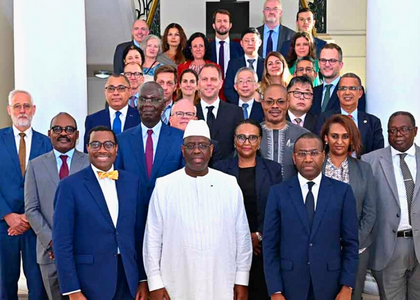
Two of our Laureates -President Macky Sall and Dr. Akinwumi Adesina- Meet in Dakar to call for Su...
September 17, 2022African Development Bank GroupSenegalese President and African Union chairperson Macky Sall has told development partners of the African Development Fund (ADF) to allow the fund to tap capital markets for more resources to meet the critical development needs of member countries. The African Development Fund is the African Development Bank Group’s concessional lending arm that supports the continent’s low-income countries.Sall said: “These are tough times for governments. We need investment and development. Today, youth are raising their voices, demanding employment. They are impatient. Governments must listen and invest more to create jobs and make African economies more competitive. The African Development Fund needs significant financing and should be allowed to go the capital markets.”The Senegalese leader was speaking to representatives of fund’s regional and non-regional member countries and senior management of the African Development Bank Group, who paid a courtesy call on him at his office in Dakar. The African Development Bank president led the delegation.The African Development Fund representatives were in Dakar for a two-day meeting to discuss the fund’s 16th replenishment.Adesina thanked President Sall for his leadership of the African Union, and for representing the continent at major international events to discuss Africa’s development.The Bank group head spoke about the transformative impact of the African Development Fund, which is marking 50 years since its inception.More ADF resources will help Africa address Covid, Climate, and ConflictSpeaking earlier at the start of the third ADF-16 replenishment meeting, Adesina said a significant addition of resources would help the fund address multiple challenges, notably, the devastating impacts of Covid-19, rising debt and economic vulnerability, a growing climate change disruption, and the threat of a food crisis triggered by Russia’s war in Ukraine.“Climate change is decimating the ADF countries, triggering even high pressure for migration to Europe in dangerous waters,” said the bank group chief. He pointed out that nine of the ten countries most vulnerable to climate change are in sub-Saharan Africa, and all are ADF countries.Adesina projected that African Development Fund countries would need $500 billion to adapt to climate change between now and 2030. He said recent data showed that Africa receives only 3% of global climate financing, adding that if this trend continued, the continent’s climate financing gap would reach $100 billion to $127 billion annually through 2030.“ADF will need a lot more resources, far beyond what donors can provide. So, we must ensure leverage to better resource ADF,” said Adesina. He added that if allowed to go to the capital markets, the fund could mobilize an additional $5.5 billion for each of its three-year replenishment cycles.Adesina described the fund a sound and unique institution delivering value for money.“The African Development Fund has connected 15.5 million people to electricity; supported 74 million people with improved agriculture; provided 50 million people with transport; built or rehabilitated 8,700 kilometers of roads; and provided 42 million people with upgraded water and sanitation facilities.”During the meeting with the ADF delegates, President Sall reiterated the need for developed economies to reallocate some of their International Monetary Fund (IMF) Special Drawing Rights (SDRs) to Africa.President Sall stressed that the African Development Bank, a prescribed holder, is best placed to deploy the SDRs to the continent by the end of this year. Out of the $650 billion announced by the IMF in 2021, African countries were cumulatively allocated just $33 billion.The African Development Bank president has emphasized that the bank can leverage the SDRs by three to four times to deliver more support to African countries. “The bank’s AAA rating allows it to provide finance to African nations at interest rates that are far more attractive than what they can obtain on their own through commercial financing,” he explains. Senegal’s minister of economy, planning and cooperation, Amadou Hott, underscored the African Development Fund’s critical role in helping countries address vulnerability. “A strong mobilization of concessional and mixed resources is more essential than ever to support our countries, support their recovery plans, and meet all the challenges they are facing,” said Hott, who is also the governor of the African Development Bank for Senegal.
-
- 1,912
-
- 20 September 2022
-

H.E. President Macky Sall opens MSGBC Oil, Gas & Power 2022
Sep 2, 2022Energy Capital & PowerHighlighting the need for African unity and the importance of strong partnerships across the continent and globally, H.E. Macky Sall, President of the Republic of Senegal and Chairperson of the African Union, opened this year’s MSGBC Oil, Gas & Power 2022 conference and exhibition – taking place from September 1-2 this year in Dakar. During his address, H.E. President Macky Sall called for the exploitation of Africa’s gas resources and improved access to development finance for the continent.“In this new configuration of the world, energy resources are major assets for Africa. Therefore, we must not accept that our continent is an object of world geopolitics, but an actor, aware of its natural wealth of interests, which acts on the competition instead of suffering it,” H.E. President Sall stated, adding that, “While remaining committed to the implementation of the Paris Climate Agreement, we must continue to defend the interests of our countries in the run-up to COP27 next November in Egypt.”Calling for a just energy transition that allows Africa the same opportunities afforded to the world’s most industrialized nations, the President discussed enhancing regional partnerships and spurring investment within the MSGBC region, emphasizing the role that megadevelopments within the basin will play in meeting domestic demand while addressing global energy needs.“It would be an aberration to give up the exploitation of our resources while more than 600 million Africans still live in the dark,” the President continued. “We will need to train qualified human resources at all levels to master the knowledge and know-how in the complex field of hydrocarbons, from welders to design engineers, financial experts, and contract specialists, to name just a few areas.”The President concluded his opening address by highlighting the region’s potential to address the global energy crisis while improving the conditions and socioeconomic development of West Africa and the continent as a whole.“Because what counts in the end is that the exploitation of our resources is done in the best conditions of transparency and efficiency, for the improvement of the conditions of our populations and the progress of our countries. This is our duty,” the President concluded.
-
- 1,851
-
- 13 September 2022
-
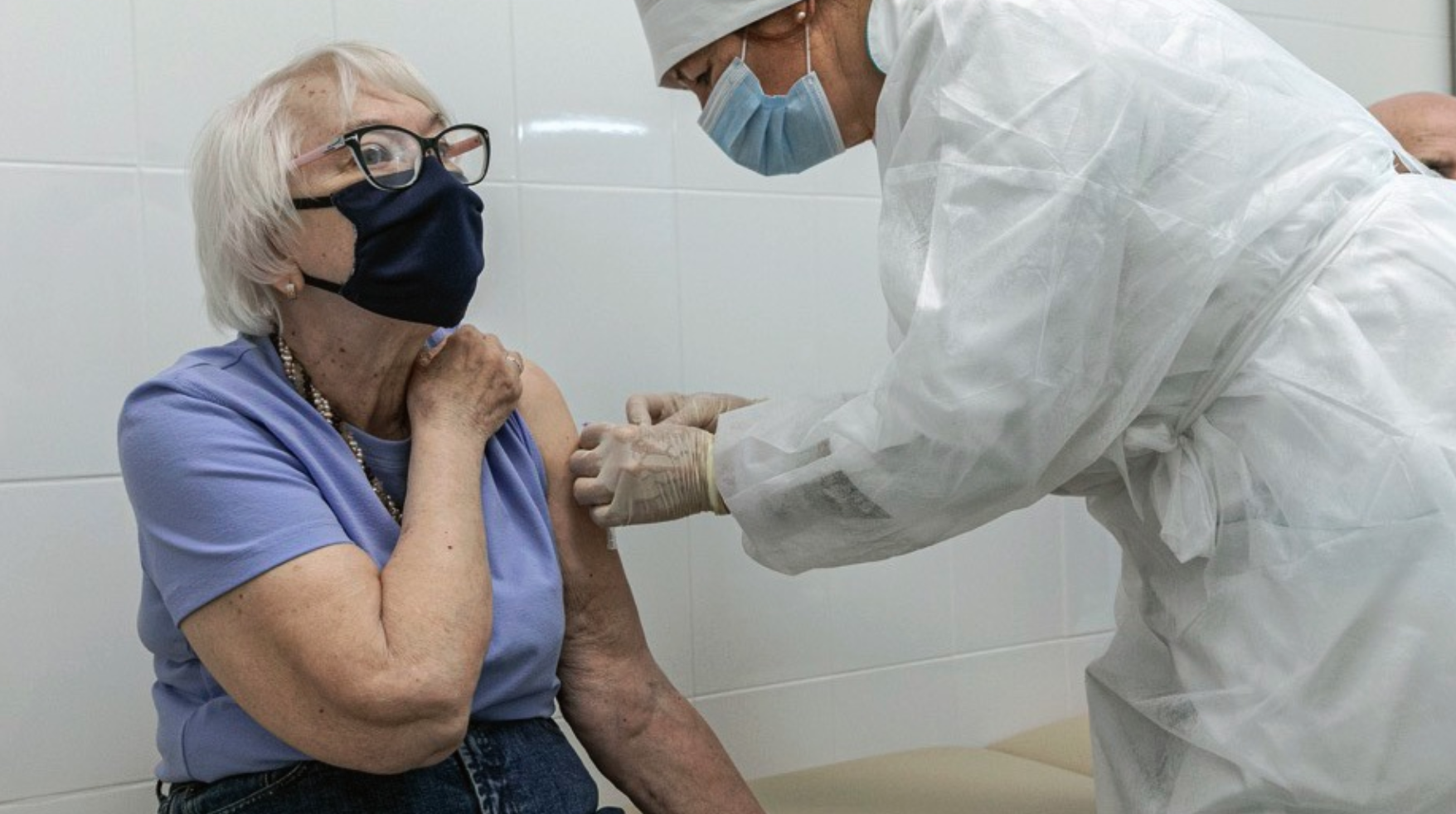
100,000 doses of the Janssen vaccine delivered to Ukraine under COVAX
August 23, 2022 World Health OrganizationA total of 100 000 doses of the Janssen COVID-19 vaccine (Jcovden) were delivered to Ukraine this month under the COVAX initiative, and distributed to 22 regions in the country by the Ministry of Health. “These vaccines will provide further protection against COVID-19 and we are working continuously with the Ministry of Health and health professionals to ensure that people in Ukraine have access to vaccines. WHO urges everybody to use the opportunity to protect themselves and others,” said Dr Jarno Habicht, WHO Representative in Ukraine. The COVAX initiative aims to ensure fair and equitable access to vaccines against COVID-19 for every country in the world. COVAX is being coordinated by the Coalition for Epidemic Preparedness Innovations (CEPI), the Global Alliance for Vaccines and Immunization (GAVI) and WHO. The United Nations Children’s Fund (UNICEF) is working with manufacturers and partners on the procurement and logistics of COVID-19 vaccines for COVAX.WHO in Ukraine has trained more than 100 medical workers and trainers across the country to conduct further training on the use of the Janssen COVID-19 vaccine (Ad26.COV2-S [recombinant]). With support from WHO, Ukrainian health-care workers have received over 23 000 copies of guidance materials on the use of the vaccine, and more are being produced. “We are grateful to our international partners for their support to Ukraine. We know that the coronavirus has not disappeared, and we continue to record growing numbers of new cases of the disease,” said Ihor Kuzin, Deputy Minister of Health of Ukraine and Chief State Sanitary Doctor. “During the war, when people are often forced to be in overcrowded conditions and do not have full access to medical care, protection against COVID-19 with the help of vaccination is especially important.” The Janssen vaccine is intended for people over 18 years old and has been approved for emergency use listing by WHO. In Ukraine, the Janssen vaccine was registered on 2 July 2021.COVID-19 vaccination policy in Ukraine All adults and children over the age of 12 can be vaccinated against COVID-19 in Ukraine (age recommendations differ per vaccine). Anyone over the age of 18 may receive a booster dose following the primary vaccination series. People aged 60 and over, as well as those aged 18–59 with conditions that increase the risk of severe COVID-19 disease are prioritized for a second booster dose.The European Union, GAVI, UNICEF, the United Kingdom, the United States Agency for International Development (USAID) and WHO continue to support Ukraine on COVID-19 vaccination, and future deliveries will ensure that as many people as possible receive protection.The delivery the Jcovden vaccine was made possible thanks to financial support from the United Kingdom.
-
- 1,719
-
- 30 August 2022
-

The Royal Society announces this year’s medal and award winners
August 24, 2022The Royal SocietyResearchers, technicians, students and support staff responsible for the development of the Oxford-AstraZeneca vaccine have been awarded the Royal Society’s Copley Medal for their rapid development and deployment of a vaccine against Covid-19.This is the first time in the nearly 300-year history of the Copley Medal that it has been awarded to a team.As the latest recipients of the Society’s most prestigious award, the Oxford-AstraZeneca Vaccine Team will join figures recognised for their exceptional contributions to science, including Louis Pasteur, Dorothy Hodgkin, Charles Darwin, Albert Einstein, and Jocelyn Bell Burnell.Accepting the Copley Medal on behalf of the team*, Professor Dame Sarah Gilbert DBE, Saïd Professor of Vaccinology at the University of Oxford, said: “It is wonderful to receive this recognition for the team that developed the Oxford-AstraZeneca Covid vaccine. “When work started on the vaccine in 2020, we needed to bring together people with complementary expertise to allow us to move quickly and plan many stages ahead. Many people worked extremely hard for a very long time, and winning this prize lets the whole team know how much their dedication is appreciated.”Other recipients of the Society’s 2022 prizes awarded for their involvement in the Covid-19 pandemic include Professor Sir Jonathan Van-Tam MBE FMedSci, who receives the David Attenborough Award and Lecture for his public engagement work, and Professor Graham Medley OBE who was awarded the Gabor Medal, in recognition of his team’s epidemiological modelling contributions.The Royal Society introduced two new annual prizes in 2022, celebrating the work of technicians and those who work to improve research culture. A number of winners this year showcase these wider contributions to the scientific effort:University of Nottingham chemistry research technician, Neil Barnes, receives the inaugural Hauksbee Award, in recognition of his role in supporting generations of physical chemists as a research technician, including as a demonstrator on the YouTube chemistry channel, Periodic Videos.Dr Diane Saunders, John Innes Centre, is awarded the Rosalind Franklin Award and Lecture, for her mentoring project to empower female undergraduate and early career researchers in plant sciences.Dr Mark Richards, Imperial College London, is recognised for his commitment to increasing equity in physics through the development of the UK’s first network of Black physicists, the Blackett Lab Family, with the inaugural Royal Society Research Culture Award. The UCL STEM Participation and Social Justice team, is aiming to make STEM more inclusive, accessible and equitable for all young people, and receive the Athena Prize.Sir Adrian Smith, President of the Royal Society said, “On behalf of the Royal Society, I offer my congratulations to the outstanding researchers, individuals and teams whose contributions to our collective scientific endeavour have helped further our understanding of the world around us.\"Science has always been a team game, and I’m proud to see such a wide array of skills and specialisms reflected in this year’s medals and awards.“From the original ideas that open up new fields, to the team effort that delivered the Oxford-AstraZeneca vaccine, or the vital work of technicians and those opening doors for the next generation of talented researchers – I am proud that we can celebrate outstanding scientific contributions in all their forms.”(The Royal Society)
-
- 2,317
-
- 30 August 2022
- Sunhak Peace Prize
-
Future generations refer not only to our own physical descendants
but also to all future generations to come.Since all decisions made by the current generation will either positively
or negatively affect them, we must take responsibility for our actions.

